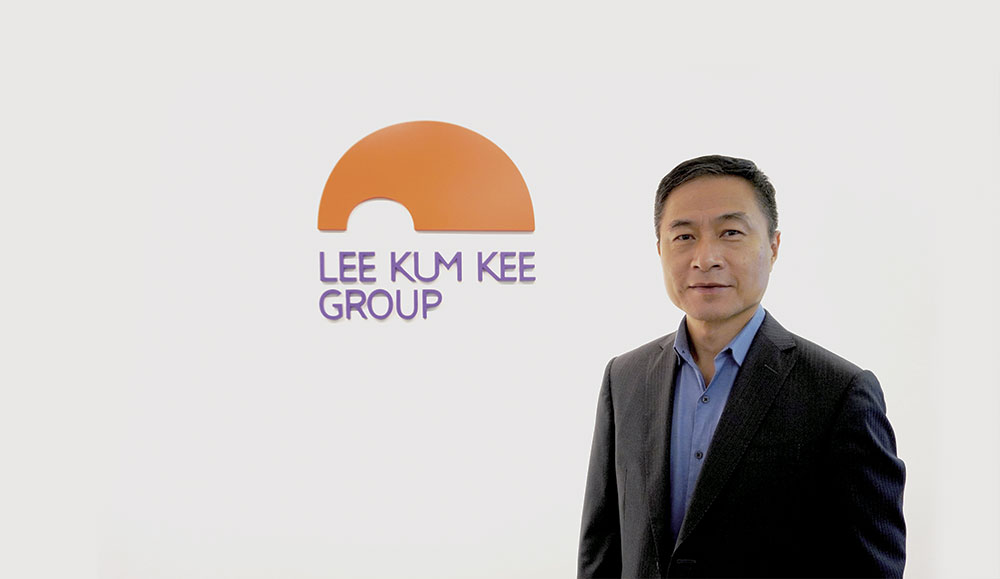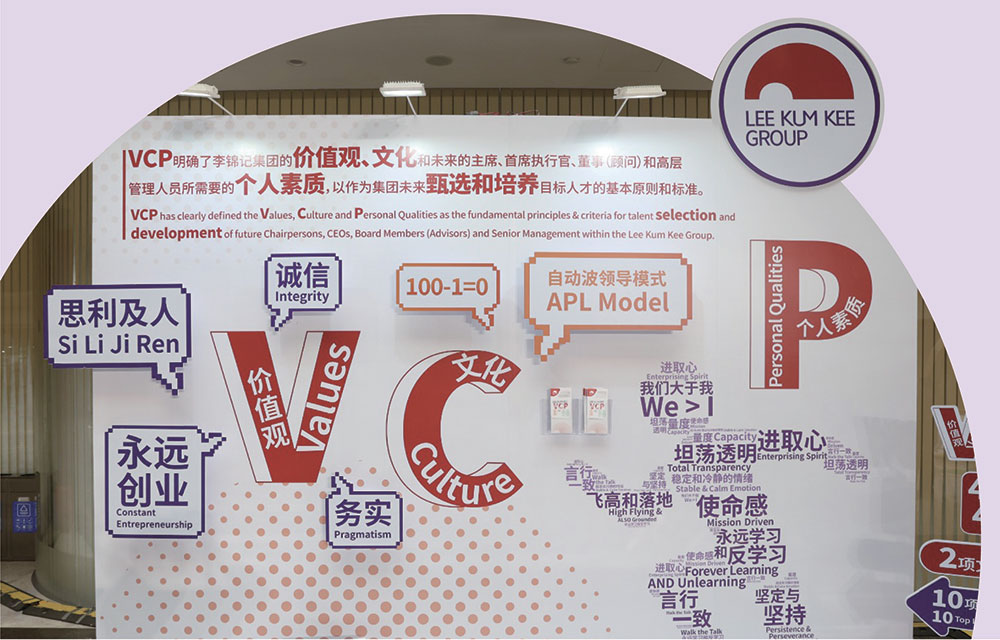EC: Could you tell us a little bit about your early
life?
DZ: I was born and raised in Shanghai. I studied in the
education spectrum for my first degree at Shanghai
Normal University. I started my career as a teacher and
later joined the commercial sector. I have worked for
multinationals such as Phillips and Whirlpool where I
have been engaged in training, talent management,
and leadership development. Later, I completed an MBA
degree at the University of Leicester.
EC: Why did you come to Hong Kong?
DZ: I switched to a different career and moved to
Hong Kong around eight years ago to my current
employer, Lee Kum Kee Group. As you know, Lee Kum
Kee is a very popular brand in the Asian market with
a long historical legacy. Actually it is not only famous
for oyster sauce, it is also a very diversified group.
But what impressed me most is its unique corporate
culture. The Group has put into practice three key
concepts that form the corporate culture – "思利及人" (meaning that considering how to do things that
could bring benefits to others than just yourself), the
core value for the Lee Kum Kee family, which serves
as the business ethos of the Group; the "Autopilot
Leadership Model," a synergy of Eastern and Western
leadership essence to attract and nurture talent; and
"Constant Entrepreneurship," which advocates seizing
the opportunities for innovations and breakthroughs.
I am deeply impressed with these as it is not only the
essence that drive business success but also the values
that nourish personal growth. Therefore, I made a big
move to come to Hong Kong with my entire family.
After relocating to Hong Kong, I pursued a DBA degree
at CityU.
EC: As Senior Vice President of Human Resources
what are your main responsibilities?
DZ: It could be a long list, but to summarise, the main
focus are Talent, Culture and Organisation. The ultimate
goal is to establish a governance model to shape and
sustain business growth.
EC: Do you have an overall approach to
identifying talent?
DZ: At Lee Kum Kee, we believe cultural fit is more
important than one's capability. We have our own
developed Values, Culture and Personal Qualities (VCP),
and competency models that sets different criteria for
different level of employees.
EC: How flexible is the company in listening to its
employees and collect innovative ideas to improve
business?
DZ: We have to create a system to encourage
innovation, apart from just talking, right? An annual
employee engagement survey is one way to listen to employees' voices, and additionally we listen to
employees' opinions through conducting satisfaction
surveys. By taking surveys, not only do we want to hear
the feedback from employees but also set the goals
for improvement. We also conduct a 360 performance
review among all levels of employees. Employees are
invited to give feedback to one another, regardless of
ranking, objectively and on an open-ground, to ensure
two-way communication.
We encourage entrepreneurship through games or
competitions. We encourage younger people to create
new business models or products that can really address
customer needs. So actually, it's a very interesting
competition and we're trying different ways to reward
people like forming groups to do market studies and
make proposals.
EC: In terms of HR, do you encourage staff career
movement across the subsidiaries. Is it possible
that somebody who starts off in, let's say Sauce,
ends up in real estate in London?
DZ: Yes, at Lee Kum Kee, we practise "Autopilot
Leadership Model." We believe that in order for
business to become sustainable, we must unleash
employees' potential. Only in this way can ensure
employees are happy and achieve the best results and in
return, the company can attract talents.
In fact, the first element of the AP model is "Choosing
the Right Talent," which is crucial for the success of
any organisation. One of the critical aspects of this
element is "Positioning People Properly." Only when
employees are placed in the right position will they
actualise their full potential and maximise their value to
the Company. We promote empowerment and believe
one should never set limits to achieve breakthroughs
and innovations to gain a more diversified working
experience. Such an approach provides opportunities
for employees to shine and find suitable roles within the
Company.
EC: Can you talk a little bit about what
empowerment means across the generations?
DZ: Many companies are talking about
empowerment, whereas our company advocates
"Effective Empowerment." Many managers practice
empowerment by simply assigning jobs to their
subordinates. On the contrary, managers who practice
Effective Empowerment also coach their subordinates
through systematic process with the necessary
guidelines, leading to more impressive results.
We found the younger generation have their own
individual explicit needs. They're looking for more
freedom, more flexibility and more recognition instead
of criticism or too much tough feedback. And they have
their own lifestyle. They were born in this mobile digital world. By Coaching and Developing Talent, it nurtures
individuals to grow their skills and become better team
players, ultimately contributing to business sustainability.
Especially in the post-Covid world, we need to be more
flexible than before, although we should gradually
encourage more face-to-face interactions. In general,
I would say coming to the office for two or three days
per week would be good. But it should be flexible
enough that for certain jobs, you can join Zoom
meetings when you are on the go or from different time
zones or remote locations.
EC: What qualities do you look for in university
graduates?
DZ: So if we're using our core culture as a starting point
to look for talent, you need to have some teamwork,
team spirit, which we called "We > I" (We are Greater
than I). And we need people who really can play a
future leadership role. People who can build a strong
team, develop talents, and demonstrate becoming a
role model. We also need talents who can demonstrate
"Constant Entrepreneurship," so they're willing to
take risks and are also open to creative thinking. We think a personal mission is very important which means
that people are clear about their values, purpose,
and meaning. At Lee Kum Kee, we strive to promote
"Health and Happiness." We invite people who share
the same beliefs to join us to co-create a happier world.
EC: You talked about "Health and Happiness" just
now. How do you plan on becoming a role model?
DZ: Well, I am deeply impressed by Lee Kum Kee's
mission of promoting health & happiness and its
corporate culture. Health and happiness start with
yourself — I believe the path to health and happiness
begins with simple daily routines. There are a number of
simple tips that helps to recover your energy.
First, encourage yourself to go to bed before 11pm.
Second, take a quick nap after lunch to feel refreshed.
Third, eat a healthy diet, and aim to walk ten thousand
steps a day. Fourth, maintain good relationships with
your partners and friends. Additionally, you can also
practice positive thinking, which helps to change your
perspective and boost your happiness. Even small steps
can make a big difference.


